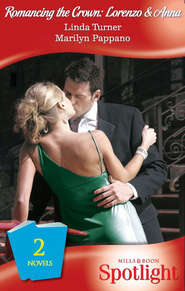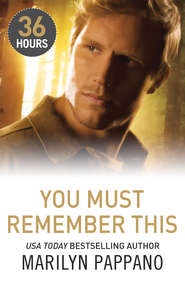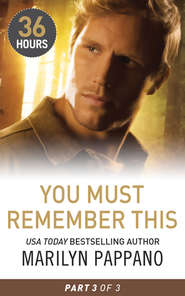По всем вопросам обращайтесь на: info@litportal.ru
(©) 2003-2025.
✖
Copper Lake Confidential
Автор
Год написания книги
2018
Настройки чтения
Размер шрифта
Высота строк
Поля
“I actually meant Saturday night.”
“Why?” he asked again.
Marnie’s sigh was long-suffering. “A friend of mine—well, a friend of a friend of mine—needs a date for a thing, so she asked if I’d ask if you’d go.”
“Which friend?”
“Sophy.”
The muscles in his neck relaxed. He liked Sophy Marchand—had been out with her a couple of times without Marnie acting as intermediary. “Why didn’t Sophy call herself?”
“No, she’s my friend. Her friend is Kiki Isaacs.”
In the kitchen, Scooter gave a little whine. The dog had excellent hearing—and taste in women. Kiki was a detective with CLPD, pretty, whiny, aggressive and didn’t know the meaning of the word subtle. The few times he’d seen her off the job, she’d still been armed, even though she could probably heave him like a javelin. She was an in-your-face type, and frankly, she scared him.
“Uh, you know, Scooter’s been sick this week.”
On cue, the dog lifted his head and gave a pitiful wail. Switching the phone to the other hand, Stephen fished a cookie from the bowl on the desk and tossed it to him, mouthing, Good boy.
“And you know how I always play catch-up on weekends.” He set goals on Monday and worked as he could during the week, then busted his butt on the weekend to be sure he reached them.
“Would it make any difference if I told you I’d be there, too?”
“Where?”
“It’s a retirement party for the police chief. We all have to go.”
“How about I go as your guest and Kiki can hang out with us?” Or not.
Marnie muttered to herself—he caught the word de-comp and didn’t listen for more—then said, “I, uh, have a date.”
Stephen’s eyes widened. He couldn’t remember the last time his sister had had a date. He loved her dearly, but she was…different. Dead people interested her way more than any living soul. Chitchat for her usually involved lab values, blood-splatter evidence, processes of death or similar subjects most people did not want to talk about over dinner.
“Does it matter to you if I take Kiki?”
Again she was silent. Probably weighing the satisfaction she could receive having her own escort at the party while Kiki went dateless against the knowledge that Kiki would have been dateless if not for her. “Yes,” she said at last.
“Okay. Remind me Friday.”
“Thanks.” The line went dead. Never any goodbyes for Marnie. If she was finished talking, she hung up.
Stephen set his phone down, then leaned back, staring at the molten red-and-green world rotating on his computer screen. Slowly the view zoomed in, showing mountains and plains, deserts and seas, trees and buildings and people, then it swept out to a global view before repeating it in a new spot.
Marra’akeen. The world where he spent much of his time. The world where he would much rather be come Saturday night. But if it was important to Marnie, he would go and he would be more pleasant than Kiki deserved. And if she acted the way she usually did, he swore he would make the next villain he created a pushy, curly haired whiner named Ke’Ke.
Opening his last document with a sigh, he read what he’d written the day before. By the time he reached the last page, he was in the story’s rhythm and began typing. Though there were as many ways to write a book as there were people writing them, he liked stopping in the middle of a scene, saving himself the hassle of deciding what should happen next when he came back to it.
He worked steadily for more than an hour before his gaze strayed to the south window. The roof of the Howard house was just visible through the trees. He’d driven past it hundreds of times since he’d moved here, and he’d never seen any sign of life. Of course, the Woodhaven Villains weren’t the type to sit out on their porches, in the few houses that even had porches, or work in the front yards themselves. In his world, they were Lord Gentry who hired Workers to do anything remotely similar to manual labor. They lived in luxurious cocoons, surrounded by tall walls and state-of-the-art alarm systems to keep out the Lessers. It was all way too confining for him.
Macy Howard had looked confined, but there had been something restless about her, something…uneasy.
He shook his head to clear it. He would probably never see her again. Scooter rarely used the same hiding place twice. Though she might come in handy as a model for the repressed daughter of the Lord Gentry Tu’anlan, who escaped her fortress home to become one of the Warrior Women who guarded the Crystal.
Turning his back on the window, with the repressed but rather pretty Ma’ahcee forming in the back of his mind, he began typing again.
The brief interruption of Scooter and his master had eased a bit of the tension knotting Macy, a fact she hadn’t noticed until she walked back into the house with her suitcase and her entire body went tight again. One even breath after another, one forced step after another, she went to the purse she’d left on the kitchen island and pulled out the list she’d made.
Go inside. Walk through the rooms. Take bag inside. Unpack in guest room. Change clothes. Start.
An overly simple list, but some situations called for a step-by-step guide, Shrink #4 had told her. Every situation, no matter how stressful or complicated, can be broken down into manageable steps. Time to test his theory.
Mentally she checked off the first three items, then let her gaze shift through the doorway and down the hall to the stairs. She thought of the dust particles, of climbing the stairs, of being as far from an exit as she could get in the house, and skipped ahead to the last item.
Start. Start sorting through six years of furniture, treasures and detritus. Start choosing what to take with her and what to leave behind. Start rebuilding the life Mark had stolen from her. Start over. One manageable step at a time.
First she needed packing supplies. Once in the van, she backed out of the driveway and into the street, and the tension in her shoulders eased. As she turned out of the subdivision onto the main road, it eased even more. It wouldn’t go away, not while she remained in Copper Lake, but it was a definite improvement.
Her destination was the self-storage facility on Carolina Avenue that also rented moving vans and sold packing supplies. She didn’t know the clerk behind the counter, and thankfully he didn’t seem to recognize her, taking her cash and helping her load bundles of cartons, rolls of Bubble Wrap and heavy paper and tape into the back of the van.
She would have driven straight back home except for a wandering glance at the riverfront park while she sat at a red light. Seated there on a bench, watching two small children play, was Anamaria Duquesne Calloway. Though they’d socialized with the same people, they’d never been friends, not really. The Calloways were the one local family more prestigious than the Howards, but Mark had never approved of Robbie Calloway’s wild behavior before marriage, and he certainly hadn’t approved of Robbie’s marriage to the mixed-race Anamaria, so he’d kept Macy at a distance.
However, once, while she was pregnant with Clary, Macy had gone behind Mark’s back to meet with Anamaria. She’d wanted the psychic’s assurance that everything was fine with the baby, and she’d gotten it. The easing of her worries had been worth Mark’s irritation—and his grandmother’s fury—when he’d found out.
Once, Macy reflected as the light changed. Once, in the years they’d been married, she’d done something Mark hadn’t wanted.
She would have driven past the entrance to the park if some bit of resentment hadn’t seeped through her. Instead, she turned in, parking beside the lone vehicle there. She was being pushy. If she wanted Anamaria’s professional advice, she should call and make an appointment. She shouldn’t intrude on a mother’s playtime with her children. She should, shouldn’t, wouldn’t, couldn’t…
Before the argument inside her had played out, there was a tap on the window. Startled, she looked up to see Anamaria’s sympathetic face. With a click, she opened the door and slid out, straight into Anamaria’s comforting embrace.
“Macy. It’s so good to see you.”
For a moment she held herself stiff—when she was stiff, it was harder to be overwhelmed by emotion—but it took too much effort. She softened in Anamaria’s motherly embrace. She felt welcomed. Unjudged.
“I’d heard you were coming back,” Anamaria said when at last she eased her grip.
Macy smiled faintly but didn’t ask from whom. The answer could be as simple as her husband—the lawyer who’d handled both Mark’s and his grandmother’s estates—or as complex as some soul on the other side, maybe Mark. Maybe even her lost baby.
A small hand gripped the hem of Macy’s dress, and she looked down to see Anamaria’s daughter staring up at her. “I’m Gloriana,” she murmured around two fingers tucked in her mouth. “Where’s your little girl?”
Macy blinked, then looked at Anamaria. “I must have mentioned Clary to her sometime,” the woman said with a serene smile.
“She’s with her uncle,” Macy replied, unconvinced by Anamaria’s smile. According to rumor, every Duquesne woman had gifts of one sort or another. Gloriana was young, but no age was too young to use the talents you’d been born with, she supposed.
“Go play with Will.” Anamaria gave her daughter a gentle push before linking arms with Macy. “Come sit. We’ll talk. Are you coming home?”
“No.” Macy’s reply came automatically. When they reached the bench, she sat down, then shrugged. “I can’t face…You know how people love to gossip. Eventually Clary would have to pay the price.”
“No one blames you or Clary. How could they?”











